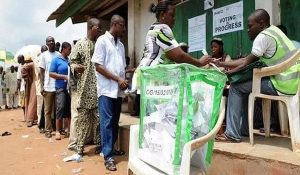The Socio-Economic Rights and Accountability Project (SERAP) has called on Nigeria’s 36 state governors to explain how they have spent public funds allocated as security votes since 29 May 2023.
In separate Freedom of Information (FoI) requests dated 28 June 2025 and signed by SERAP’s deputy director, Kolawole Oluwadare, the organisation urged the governors to account for the security vote expenditures and to invite the Economic and Financial Crimes Commission (EFCC) and the Independent Corrupt Practices and Other Related Offences Commission (ICPC) to jointly investigate and monitor such spending.
SERAP’s call comes in the wake of ongoing insecurity and recent killings in Benue State, which it described as further evidence of governors’ failure to guarantee the safety and welfare of citizens despite billions of naira allocated annually for security purposes.
“The Nigerian Constitution does not envisage opaque spending of public funds under the guise of security votes,” the group stated, adding that the secrecy surrounding the funds has contributed to large-scale corruption and undermined public trust.
Quoting constitutional provisions, SERAP noted that Section 14(2)(b) of the 1999 Constitution states that the security and welfare of the people shall be the primary purpose of government, while Section 15(5) requires the abolition of corrupt practices and abuse of office.
“In 2021 alone, state governors and local government chairmen reportedly received over N375 billion in security votes,” SERAP said, adding that despite this, insecurity remains widespread, and the funds remain unaccounted for.
The organisation emphasised that the Supreme Court has affirmed the applicability of the FoI Act to all levels of government, dismissing claims by some governors that the law does not apply to state-level records.
“The judgment sends a powerful message that governors can no longer evade accountability. Transparency on the use of security votes is essential to addressing insecurity and rebuilding public trust,” SERAP added.
The group warned that failure by any governor to respond within seven days would prompt legal action to compel compliance in the public interest.
According to SERAP, Nigeria’s classification by the World Bank as a fragile and conflict-affected state underscores the urgent need for accountability, especially as insecurity continues to exacerbate poverty, hunger, and human rights violations.





